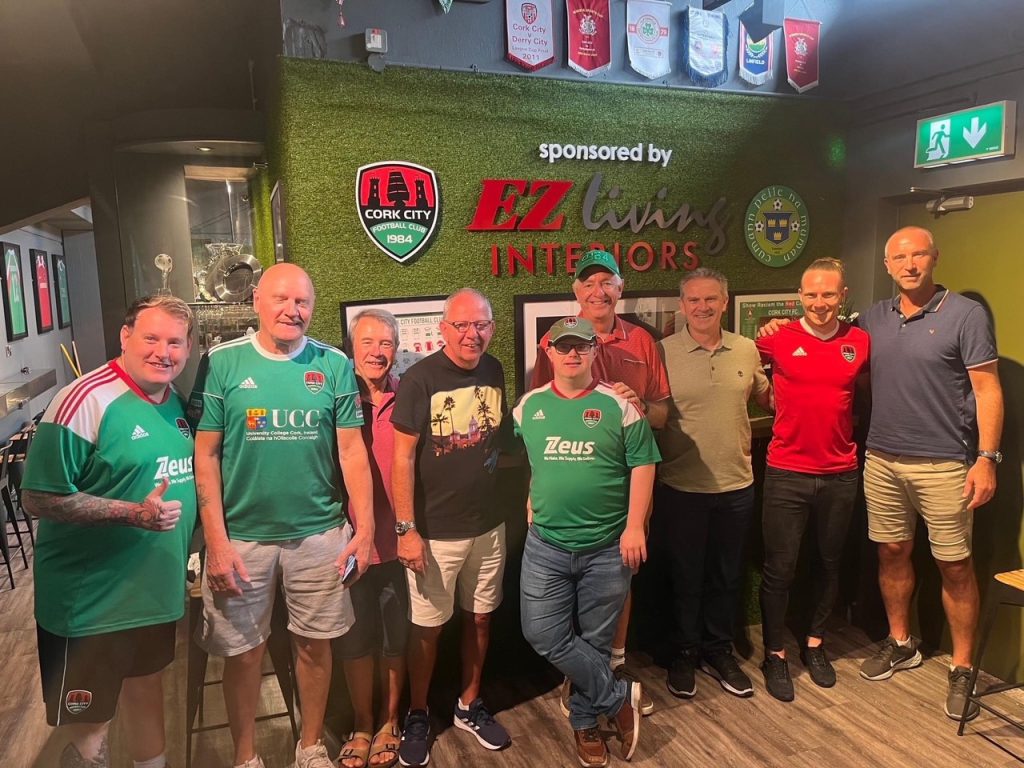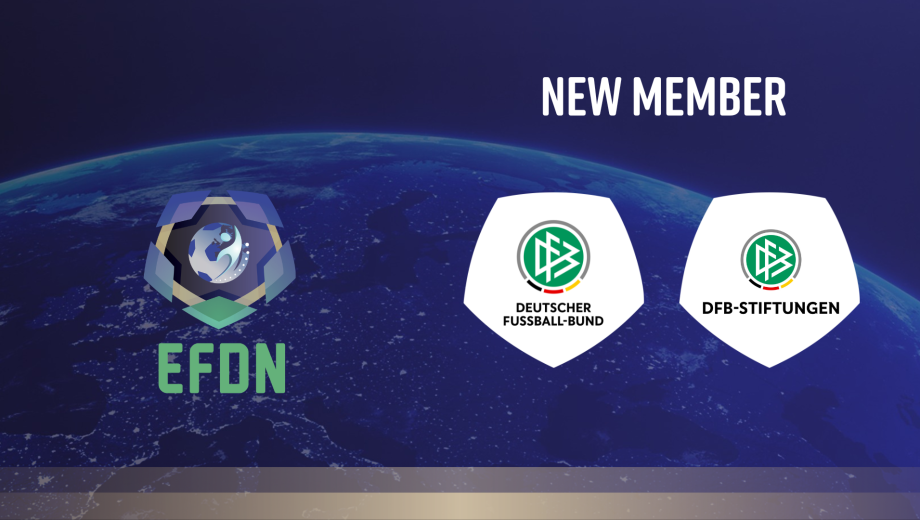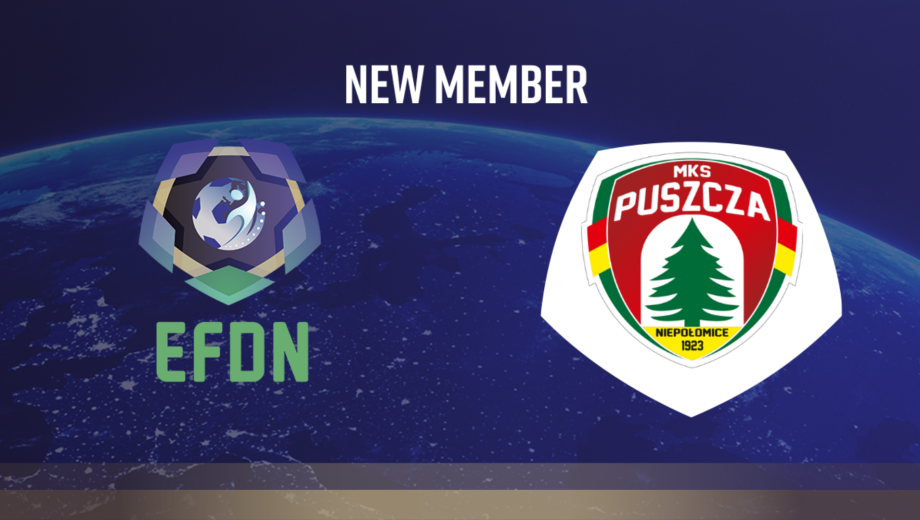EFDN Member of the Month – January 2024
We’re back with a new EFDN Member of the Month announcement! This January, we are delighted to announce one of our first football association as our Member of the Month: the Football Association Ireland (FAI), accompanied by an interview with their Community Development Manager, Derek O’Neill.
This initiative aims to showcase the outstanding efforts of our member clubs, leagues or FA’s honouring their dedication to using football for positive change in their communities. Each month, we select a deserving member organisation based on its leadership, innovation, and impact on social responsibility. The chosen member gains exclusive visibility across our network and beyond, allowing their inspiring work to be recognised and celebrated.
To celebrate FAI’s nomination, Derek O’Neill accepted our invitation for an interview, enabling us to discover the remarkable experiences as well as his personal stories and initiatives that have led to the club being selected as the EFDN Member of the Month.
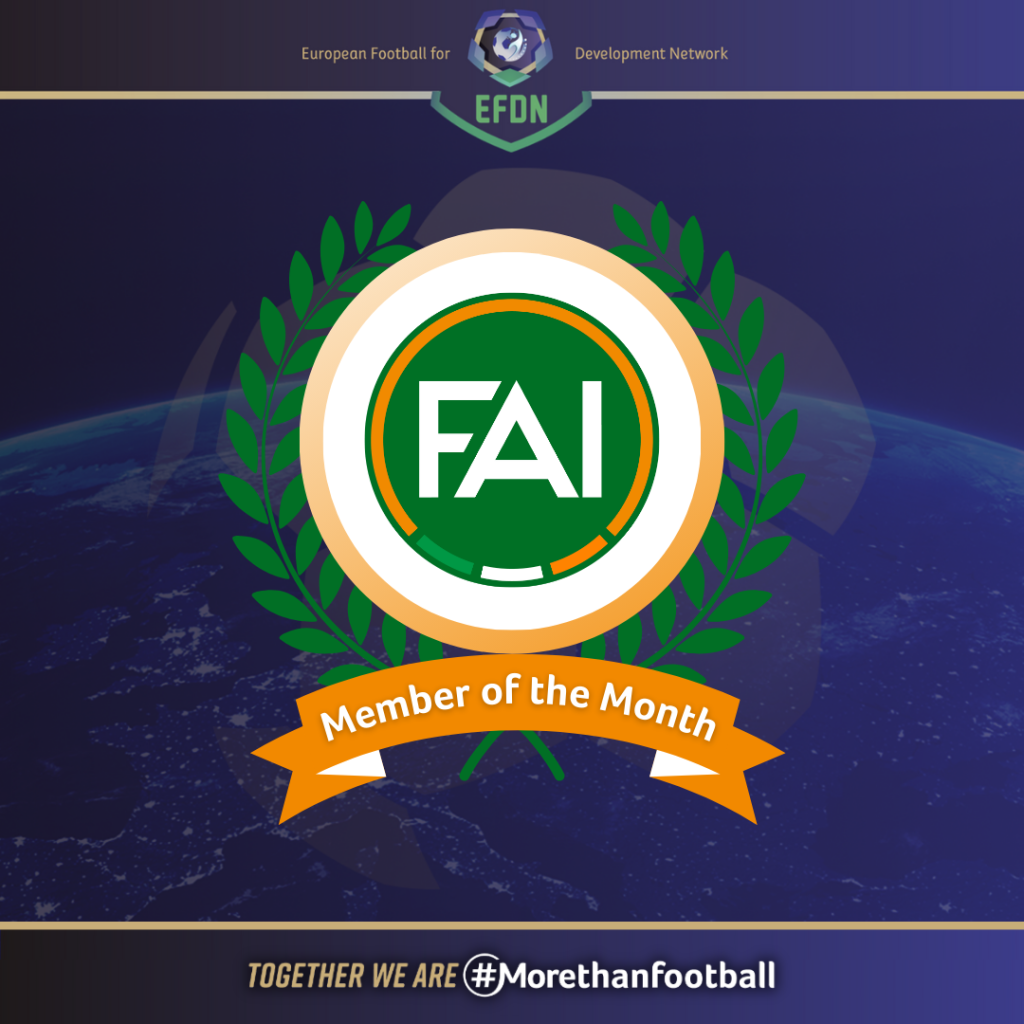

A Short Introduction to Derek O’Neill
My name is Derek O’Neill and I’m the Football League of Ireland FSR Manager. I’m a former professional footballer and started working with the Football Association of Ireland in 2002. I’ve worked in several different Technical and Corporate areas of the Association and managed several major projects. I also hold a UEFA A Football Coaching Diploma and coached with many underage Republic of Ireland National football teams as well as the Republic of Ireland National Senior Futsal team.
I graduated from Dublin City University Business School in 2014 with a Master’s Degree in Management and it was around this time that I took a serious interest in utilising football for social good. I’ve worked specifically on football-themed social projects for around twelve years now. My first major EU funded social project involved a partnership between the FAI and the Welsh Football Trust to develop a football-themed education programme from which almost 1000 young people from disadvantaged communities graduated and progressed to employment or further education. I’ve since delivered another EU funded pilot project to assist League of Ireland and Welsh professional football clubs to develop their community engagement capacity. It was as a result of this pilot project that my current role evolved into working with every League club to assist them to develop a FSR or football in the community programme.
What makes you smile in your role?
Regularly seeing how the power of football can break down barriers, provide opportunities and bring people together on a common platform to be able to communicate, integrate, work together and make progress. Knowing that I’m playing some part in all of that here makes me smile!
What inspired you to work in the CSR/ESG field and what made you interested in making a difference in the football industry specifically?
There’s a saying that suggests that if we judge a fish by its ability to climb a tree, it will spend its life believing it’s a failure and this reminds me of a project I started in 2011 called Project F.U.T.S.A.L (Football Used Towards Social Advancement & Learning), where we aimed to use the attraction of football to entice hundreds of young people, many who were early school-leavers, back into formal education. Many of them previously had issues with the traditional education system and could not relate to the environment or traditionally taught academic subjects such as mathematics, history, geography, business studies, science, languages etc.
However, we hired tutors to educate these young people through the lens of football/sports related topics which seemed to spark their interest to re-engage with education. Also, using an informal environment such as a football club to host and deliver a sports themed education programme (instead of a formal school environment) with tutors who wore tracksuits seemed more appropriate for this cohort of learners. We found they were more comfortable in this learning environment and could relate more to the programme subjects. They could understand Business Studies principles better if they were explained through the lens of running a football club. They could relate to Mathematics if the problems were presented in a football context and to Biology if it was perhaps presented in relation to football injuries.
What captured my interest was the huge number of people who made a success of their time on the programme and finally achieved a formal second level qualification – clearly, it was the football content of the course which kept them engaged. Quite a few who struggled in the traditional school setting actually progressed to third level education with most of the course participants at least securing employment and some even forging full-time careers in the football industry. Seeing people graduate with third level sports related degrees who never believed that they could even successfully achieve second level academic qualifications in school really inspired me to look at how utilising football and other sports could help people in other ways in other circumstances.
What core values guide your foundation’s work, and how do you ensure your initiatives have a lasting impact?
Inclusivity, Teamwork and Passion are core values of our FSR work. Firstly, I think “Inclusivity” is a big part of what FSR is all about. “Teamwork” is also hugely important as many skillsets and resources are needed to provide solutions for any social intervention and we are proud to work with some fantastic people and agencies as programme partners, who play a big role in providing resources to enable programme development and delivery. Finally, “Passion” is the driving force for all that we try to do in using football for social good.
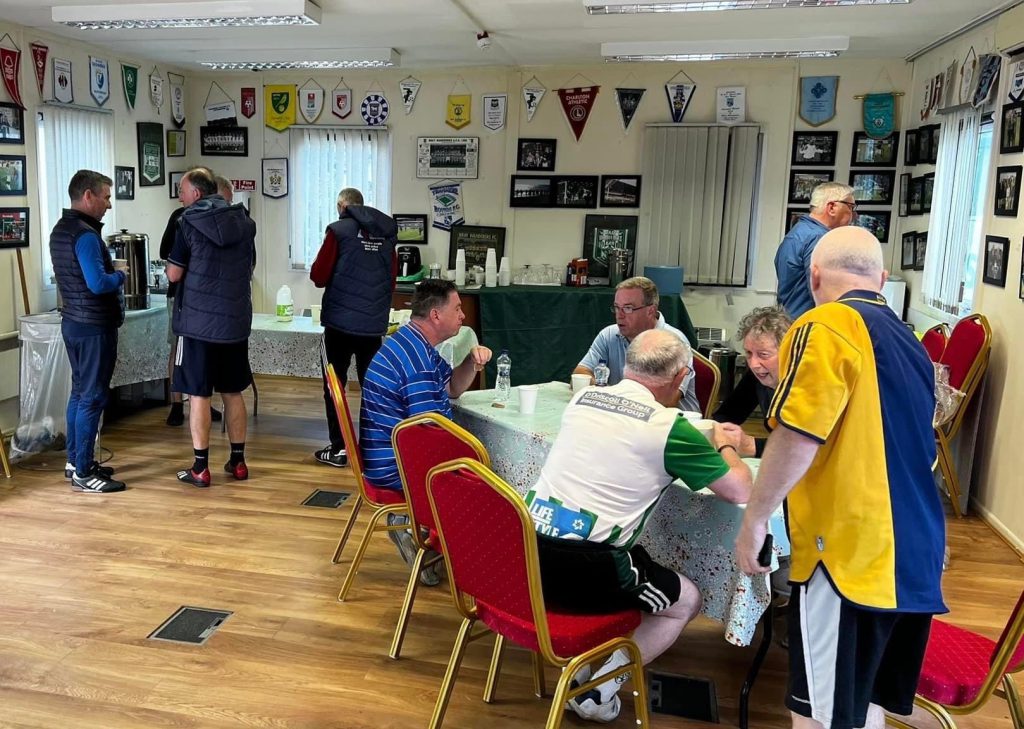
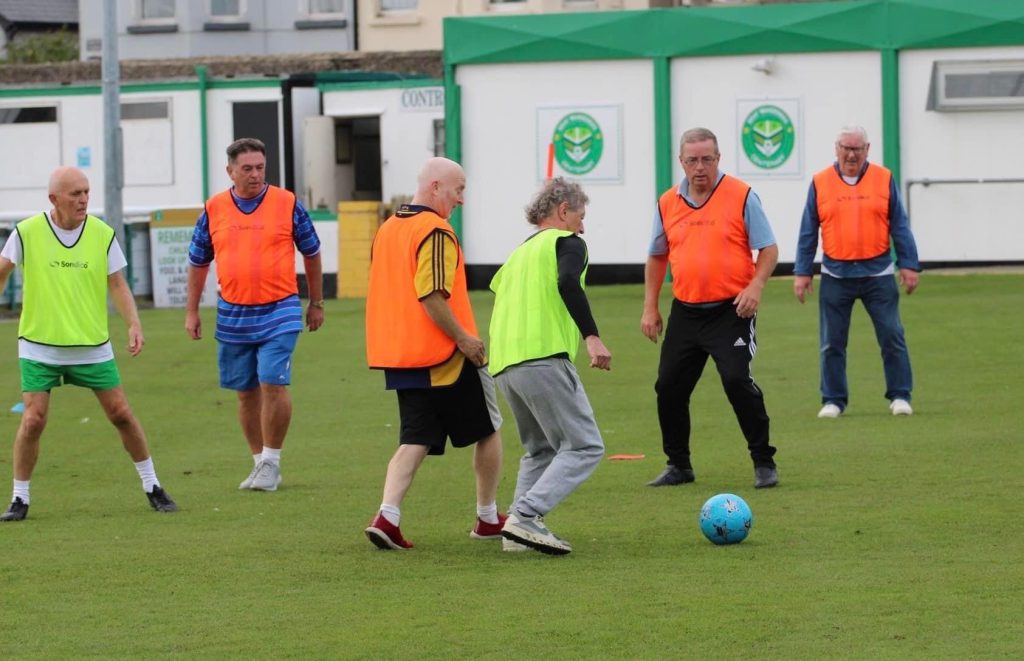
What’s your favourite project?
My current favourite is the work being done by Waterford FC to contribute to their city becoming Ireland’s first autism friendly city. They work with children with autism to include them in their club and provide them with opportunities to play football in a safe environment while also helping them to comfortably attend matches at their stadium. To see the difference that this work has made in the lives of so many kids and their immediate families is amazing. However, I’m also amazed at some of the other stuff that clubs like Bohemian FC are doing around Climate Action as well as the Walking Football programme which is growing rapidly at quite a few of our clubs such as Bray Wanderers, Finn Harps, Cork City, Bohemians, Shamrock Rovers, Wexford and Waterford to name just a few. In particular, I like hearing how it has helped many people escape social isolation and get out of the house to exercise and enable them to form new friendships which surely must have a positive impact on their physical and mental health.
Can you share a memorable story that showcases the positive impact of your club’s work?
I think an inspirational story surrounds the fact that there are currently 10 (ten) full-time sports professionals now working for the Football Association of Ireland who, during the economic recession in 2011, found themselves unemployed and participated on the FAI‘s football-themed education/employability programme. It’s inspiring and satisfying to see them now working in positions where they are role models coaching local children, working with national underage teams, delivering social programmes in disadvantaged communities and overall making a positive contribution to the game and the communities in which they work. It’s like the wheel has come full circle in a relatively short space of time and they‘re now inspiring young people in positions where they once found themselves!
